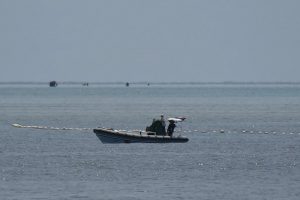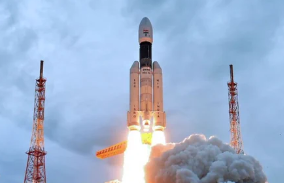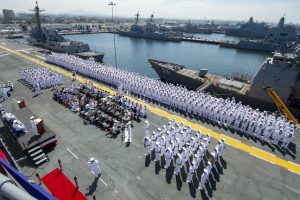All of Sri Lanka’s cabinet ministers resigned late on Sunday, as the country descended into a serious economic crisis. According to reports, Prime Minister Mahinda Rajapaksa has not yet resigned.
This comes two days after President Gotabaya Rajapaksa proclaimed a state of emergency in response to soaring prices, a lack of essentials, and rolling power outages on the island nation. As protests got violent on Saturday, the government imposed a nationwide curfew. It is scheduled to go till early Monday.
Also read: India ships food aid to Sri Lanka as unrest in Colombo worsens
Critics claimed that the main causes of the crisis, the worst in decades, were economic mismanagement by successive governments, which resulted in massive budget shortfalls and a current account imbalance. Deep tax cuts promised by Rajapaksa during the 2019 election campaign and delivered months before the Covid-19 outbreak, which wiped out swathes of Sri Lanka’s economy, hastened the crisis.
The Sri Lanka Prime Minister’s Office issued a statement on Sunday, denying any rumours of PM Mahinda Rajapaksa’s resignation.
Also read: Who is Gotabaya Rajapaksa?
In the midst of the country’s ongoing crisis, the Prime Minister met with President Gotabaya Rajapaksa. According to reports, the meeting fueled suspicions about the PM’s resignation.
Meanwhile, some significant political decisions are expected to be made at this summit.
The news of increased parliamentary pressure on the Rajapaksa family, which had previously enjoyed extensive political backing, comes as people took to the streets to protest a severe food and fuel scarcity caused by a lack of money to pay for imports. Inflation has surged to nearly 19%, the highest in Asia.
Also read: Sri Lanka orders social media blackout as anti-government protests swell
To conserve electricity and foreign money, Rajapaksa’s administration has depreciated the rupee, hiked interest rates, set restrictions on non-essential imports, and reduced stock-trading hours. He has also changed his long-held opposition to requesting a bailout from the International Monetary Fund and is currently negotiating bilateral aid with countries such as India and China.
Sri Lanka faces a “clear solvency problem,” according to the IMF, due to unsustainable debt levels as well as recurrent fiscal and balance-of-payments shortfalls.






